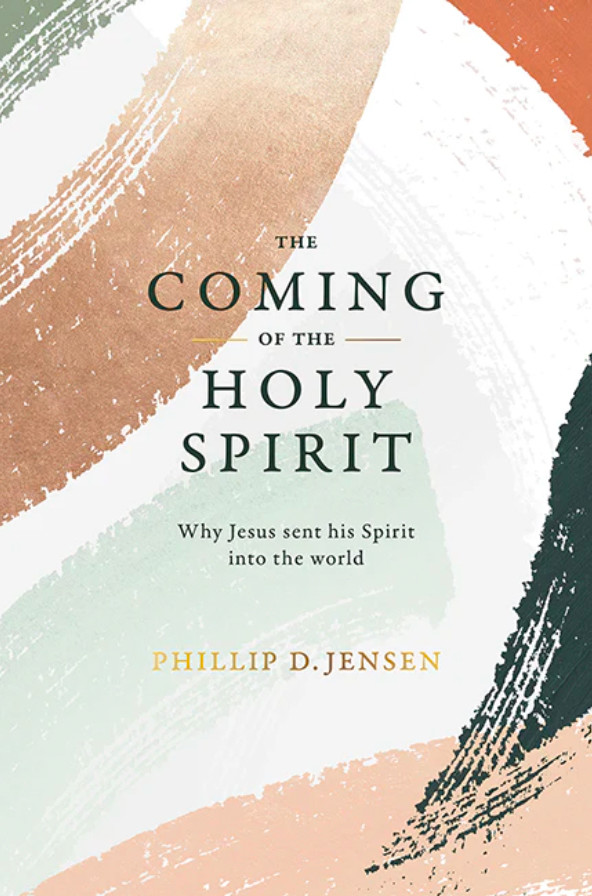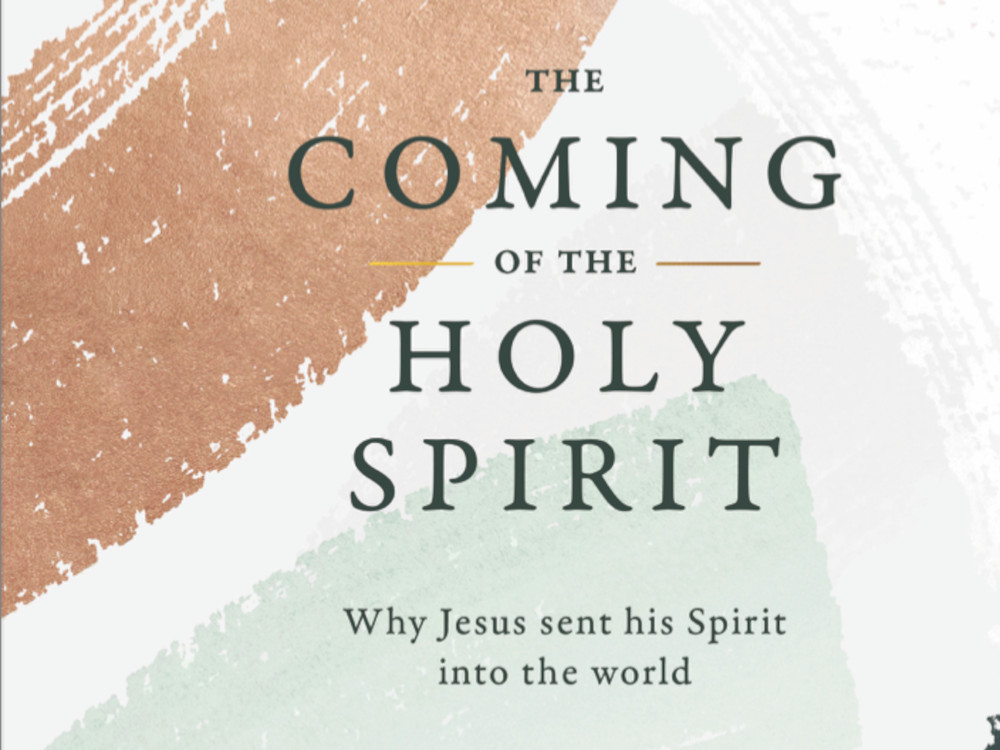“We must not begin with present disagreements or controversies,” Phillip Jensen writes in the introduction to his new book The Coming of the Holy Spirit: Why Jesus Sent His Spirit Into the World. Jensen is best known for writing an evangelistic course, Two Ways to Live, and for vigorous evangelistic work as chaplain of the University of New South Wales. He does not shy away from controversy, writing a book on the Holy Spirit as a non-Charismatic. But he means it when he says not to start with controversies. He adds, “And we must lay to one side not simply our disagreements, but also our experiences and current practices, lest we seek to justify ourselves with biblical references rather than to understand our experiences and conform our practices to the Spirit’s teaching.”
So in featuring this significant new book in as part of a series of “tasters” of books we might read these holidays, The Other Cheek will avoid any controversial parts of it and have Jensen talk about how hard we Christians must try to talk to each other.
###
I can’t help thinking of a conversation I had some years ago with the leaders of a large Pentecostal church. They invited me to lunch because, very commendably, they wanted to seek greater peace and unity with non-charismatic Christians (like me). As the Scripture says, “If possible, so far as it depends on you, live peaceably with all” (Rom 12:18).
It was a very pleasant lunch, and its agenda was to try to sort out our differences and to avoid public disputes. In many ways, that’s also why I’m writing this book—not to inflame controversy or division, but to seek agreement and unity.
But the peacemaking lunch wasn’t a success.
For one thing, it became apparent as we talked that the younger generation who were present were quite ignorant of the depth of the conflicts that the older generation had experienced. As we talked about things that had happened 20 or 30 years earlier, one younger person said to the older man beside her, “That didn’t happen!”
“Yes, I’m afraid it did”, said the older man in an embarrassed whisper.
Peace and unity can’t be achieved by rehashing the conflicts and mistakes of the past or arguing over our versions of them. We all have our stories to tell.
When my teenage grandson was dying of cancer, a charismatic Christian at a conference I was speaking at told me that unless we took Nathan away from the doctors and the hospital, God would not heal him. This was a terrible thing to say to a grieving, worried family. But I do not believe that this sort of belief (and remark) is true of charismatics in general. It certainly wasn’t true of my friend and colleague Jim Holbeck, who ran the healing ministry at St Andrew’s Cathedral (when I was the Dean there). Some charismatic Christians can no doubt tell similar stories of offensive remarks or behaviour they have experienced at the hands of non-charismatic Christians. But again, I don’t believe offensiveness is the hallmark of non-charismatic Christians.
But the peacemaking lunch really failed because it was a wallpapering exercise. We were attempting to cover over the cracks in the hope that what could not be seen would cease to matter. If we could at least appear to be friends (by not publicly disputing or criticizing), then perhaps unity would follow. But Christian unity must be unity in the Holy Spirit—the Spirit of truth. Christian unity is not in politics or coercion; it’s not in diplomacy or obfuscation; it’s not in the friendly politeness of pleasant lunches. The unity that Chris- tians have—and must maintain—is found in the truth that comes through Jesus Christ. And that truth is revealed in the Scriptures.
This brings me to a very different conversation I once had with a fellow believer—someone with whom I had profound differences.
I was in the highlands of Papua New Guinea, spending a couple of weeks teaching the Bible to the missionaries at their base camp at Ukarumpa. One afternoon, one of the high school teachers came to see me. She was from Texas, and her Christian understand- ing was that of a premillennial Dispensationalist.3 She found herself deeply troubled by my expositions of the Psalms. My talks had connected the dots of the Bible in a way that was completely different from anything she had heard before. So, over a pot of tea, we sat down with our Bibles open to listen to each other’s understanding of God’s word.
It was one of the most pleasant and challenging interchanges I’ve ever had. We both loved the Lord Jesus, both loved the Scriptures, and both were seeking to understand in order to be obedient—and yet we disagreed. And we didn’t disagree about one or two things, but about verse after verse. She would say, “But it doesn’t mean that”, then I would reply, “But it doesn’t mean what you’re saying”. I found it astonishing that she was unimpressed by my proof-texts; I was even more astonished to find myself appreciating the alternative meaning she gave them.
I had read about Dispensationalism and had even read some dispensational literature, but I’d never before had a face-to-face discussion with somebody who held these views. For her part, she had never heard a Bible teacher who was not Dispensationalist. For her, all people who professed any other position were, by definition, theological liberals and therefore unbelievers. But here was this Australian who obviously believed the Bible every bit as much as she did, but who was anything but a Dispensationalist.
It was a long and, in many ways, arduous conversation. We struggled with what each text was saying because we both wanted to know the truth. What the Bible meant mattered to us more than what we believed it meant. We tried to see what the Scriptures were teaching in their context, not just as proof-texts to support our preferred system.
What made the whole conversation so enjoyable and encouraging- ing was that we were both genuinely listening in order to understand —to understand each other, but ultimately to understand what the Bible was actually saying. It was not a debating match, scoring points and claiming victories, but a serious exploration of the meaning of the Scripture, text by text. By God’s grace, we managed to talk together like the noble Bereans, who “received the word with all eagerness, examining the Scriptures daily to see if these things were so” (Acts 17:11).
My hope and prayer is that this book is for you as that conversation in Ukarumpa was for me.

The Coming of the Holy Spirit: Why Jesus Sent His Spirit Into the World is available from the Wandering Bookseller
Matthias Media, $39.99 (hardback)

